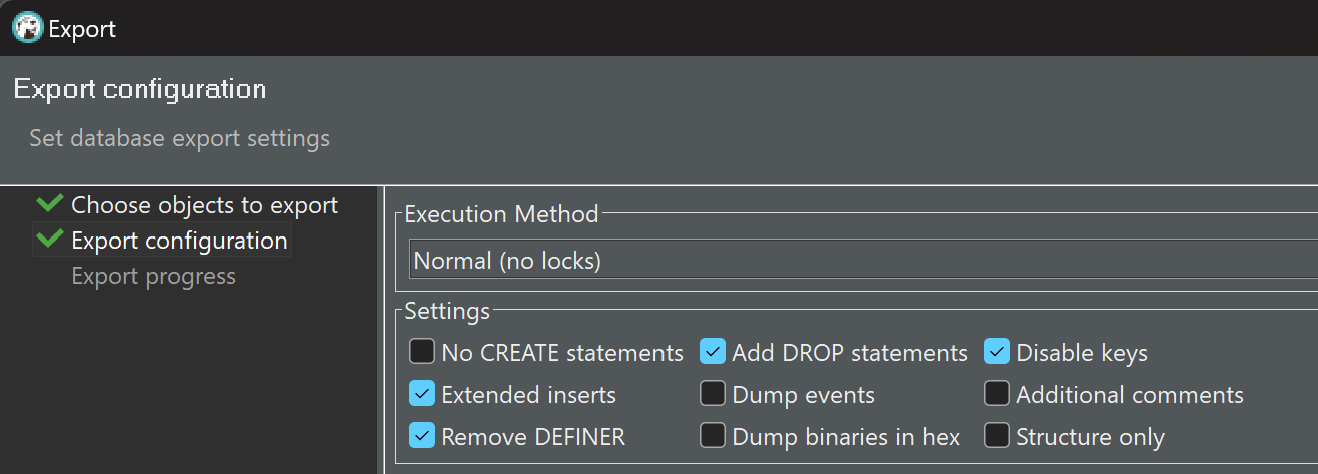Problem: You're trying to import data (using mysqldump file) to your mysql database ,but it seems you don't have permission to perform that operation.
Solution: Assuming you data is migrated ,seeded and updated in your mysql database, take snapshot using mysqldump and export it to file
mysqldump -u [username] -p [databaseName] --set-gtid-purged=OFF > [filename].sql
From mysql documentation:
GTID - A global transaction identifier (GTID) is a unique identifier created
and associated with each transaction committed on the server of origin
(master). This identifier is unique not only to the server on which it
originated, but is unique across all servers in a given replication
setup. There is a 1-to-1 mapping between all transactions and all
GTIDs.
--set-gtid-purged=OFF SET @@GLOBAL.gtid_purged is not added to the output, and SET
@@SESSION.sql_log_bin=0 is not added to the output. For a server where
GTIDs are not in use, use this option or AUTO. Only use this option
for a server where GTIDs are in use if you are sure that the required
GTID set is already present in gtid_purged on the target server and
should not be changed, or if you plan to identify and add any missing
GTIDs manually.
Afterwards connect to your mysql with user root ,give permissions , flush them ,and verify that your user privileges were updated correctly.
mysql -u root -p
UPDATE mysql.user SET Super_Priv='Y' WHERE user='johnDoe' AND host='%';
FLUSH PRIVILEGES;
mysql> SHOW GRANTS FOR 'johnDoe';
+------------------------------------------------------------------+
| Grants for johnDoe |
+------------------------------------------------------------------+
| GRANT USAGE ON *.* TO `johnDoe` |
| GRANT ALL PRIVILEGES ON `db1`.* TO `johnDoe` |
+------------------------------------------------------------------+
now reload the data and the operation should be permitted.
mysql -h [host] -u [user] -p[pass] [db_name] < [mysql_dump_name].sql



DEFINERwhen the logged-in user does not have theSUPERprivilege (which itself is not allowed in RDS) would allow arbitrary privilege escalation -- stored programs run with the credentials and privileges of theirDEFINER(as opposed to those of the calling user -- theirINVOKER), by default. Also at Server Fault. – Huppert